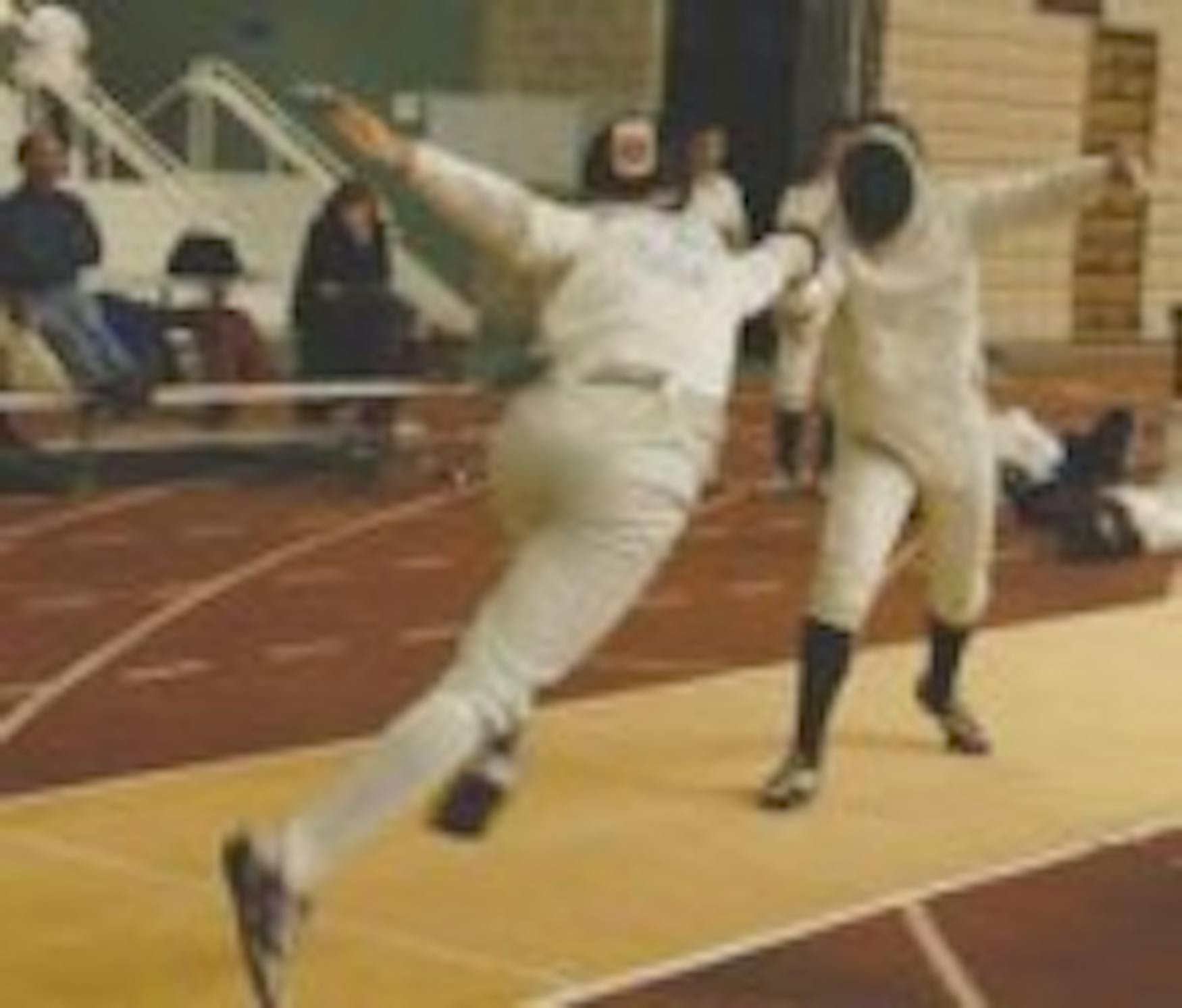FENCING: Standing out in a league of their own
Most varsity teams at Brandeis, a Division III school, aren't in the same stratosphere as their Division I opponents. But the fencing program is a completely different story, boasting one of the top teams in the Northeast region, Division I included. The Judges have competed on a Division I level for years. In fact, they are the only team in the University Athletic Association besides New York University with a fencing team.
Brandeis is sending three fencers, foil Will Friedman '09, epée Kai Keller '07 and epée Caitlin Kozel '09, to this year's NCAA Championships from Thursday to Sunday in Madison, N. J., an event featuring the nation's best fencers from all athletic divisions.
"We're absolutely on top of the Division III schools in fencing and we're better than more Division I schools than you'd think," Friedman said. "We use the resources we're given as best as possible."
The fencing team competes in top-flight fencing conferences such as the Northeast Fencing Conference and the Intercollegiate Fencing Association, which boast some of the top programs on the east coast.
"[Fencing] is the only sport here playing against world-championship caliber athletes," saber Brendan Doris-Pierce '07 said.
The men's team won the New England Fencing Conference title with a spotless 10-0 record last month, while the women finished second with a 10-2 mark. The men's team also topped the University of Pennsylvania for the first time ever this season.
In national competition, the men's epée squad captured its first title at the March 3 IFA Championships, topping perennial Division I contenders such as Harvard, Columbia and Princeton Universities.
Coach Bill Shipman said that the Judges' Division I-caliber schedule raises the team's level of play.
"The quality of the competition contributes to the quality of the team," Shipman said. "If we were unsuccessful, then we'd rethink [the schedule]."
Competing against Division I schools is feasible for the fencing team since the talent discrepancy between Division I and Division III schools is much smaller in fencing than it is in most other collegiate sports, players said.
"Fencing is a small enough sport that there are only so many athletes a school can recruit in the U.S. and [throughout] the world," Friedman said. "It's not impossible to have good fencers in Division III schools."
In addition, while Division I schools can flex their muscles in other sports by recruiting physically imposing athletes, size and strength matter less in fencing.
"You're never going to see a six-foot, nine-inch, 280-pound fencer," Doris-Pierce said. "The equalizer [among fencers] is intellect and knowledge of the game."
Still, as a Division III school, Brandeis is at a recruiting disadvantage because it can't offer attractive scholarships to prospective fencers from all over the world like Division I schools can. As a result, Brandeis loses out on the opportunity to add top international talent to its roster.
Brandeis compensates for this by looking to regional junior fencing clubs like the Boston Fencing Club and the Rhode Island Fencing Academy & Club for top local talent.
"In the last five to eight years, more good fencers are coming out [from the American high school ranks]," Shipman said. "We're getting fencers with significant experience."
Brandeis also benefits from more coaching depth than most Division III schools.
While most Division III schools don't have the opportunity to employ assistant coaches, the Judges receive the tutelage of assistants Dan Korschun and Elif Sachs.
"[Korschun and Sachs] not only give individual lessons, but provide mental and personal support," Shipman said. "It keeps the fencers happier."
Despite all their achievements in Division I competition, the Judges are still viewed as underdogs in the fencing community. In the past, teams like St. John's University have sent their "B-team" fencers to face Brandeis.
"We're usually an underdog against Division I schools," Kozel said. "It excites and motivates the team."
While many coaches and fencers may overlook the Judges, Harvard coach Peter Brand is one authority who certainly doesn't underestimate the Brandeis fencing program, crediting the leadership of Athletic Director Sheryl Sousa with a large part of the Judges' success.
"I am always leery when it comes time for us to face off against Brandeis," Brand said. "Many athletic directors don't pay [enough] attention to fencing, leaving fencing coaches to fend for themselves. Historically, Brandeis has been one of the few exceptions in this area. [Sousa] gives fencing the support it deserves."
This week's NCAA Championships will be yet another opportunity for the Brandeis fencing program to continue its ascent. But once again, the Division III Judges will enter the competition with an underdog reputation, and may surprise their opponents.
"Nobody expects us to make a big splash," Shipman said.



Please note All comments are eligible for publication in The Justice.